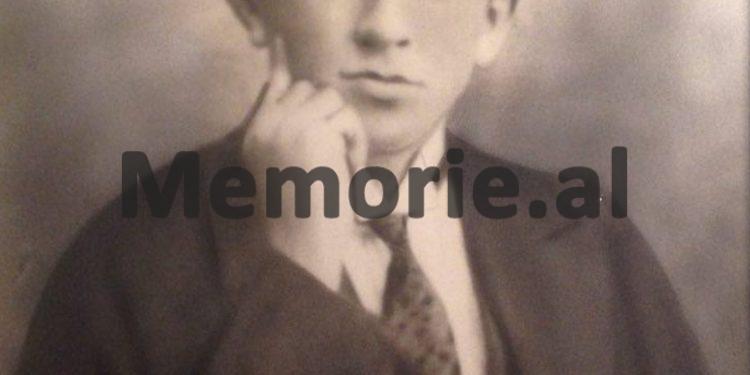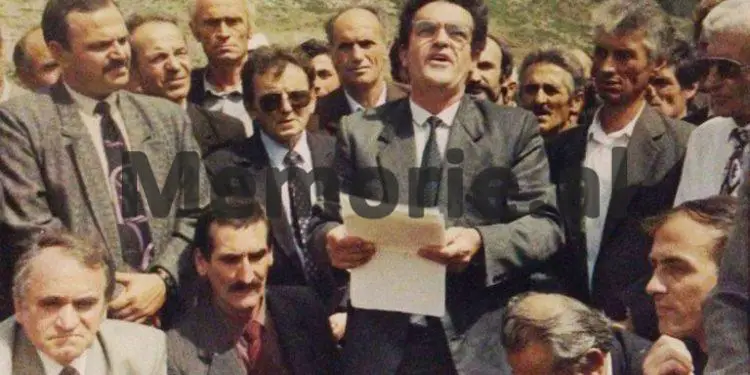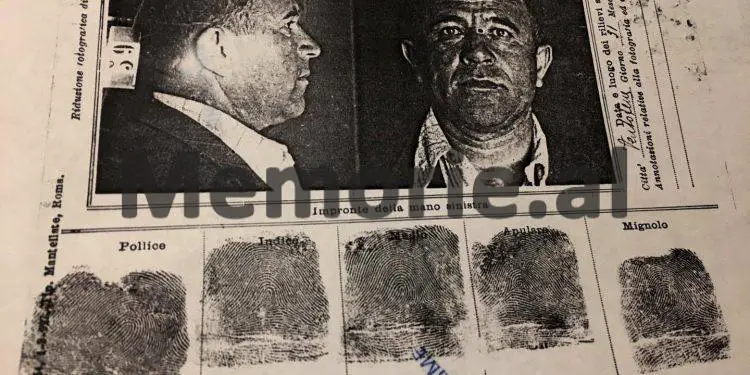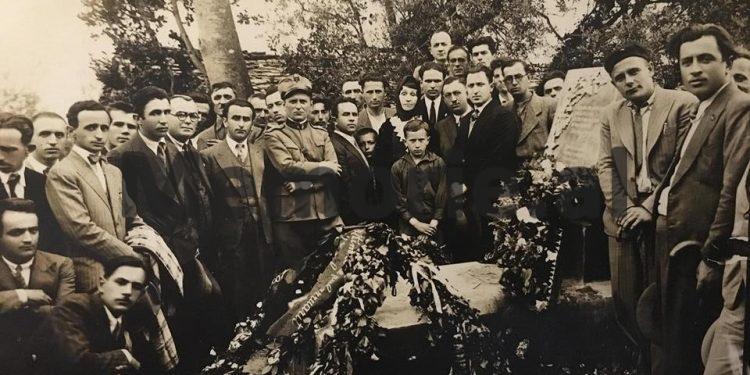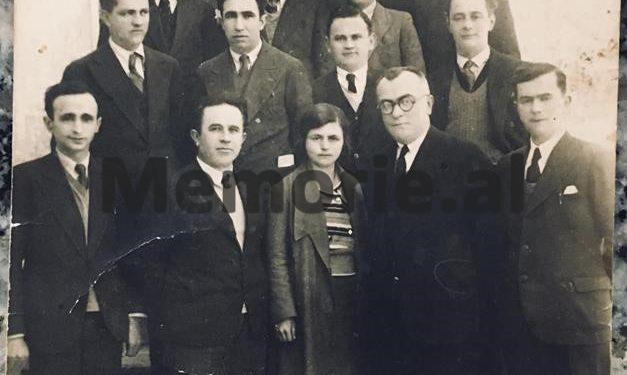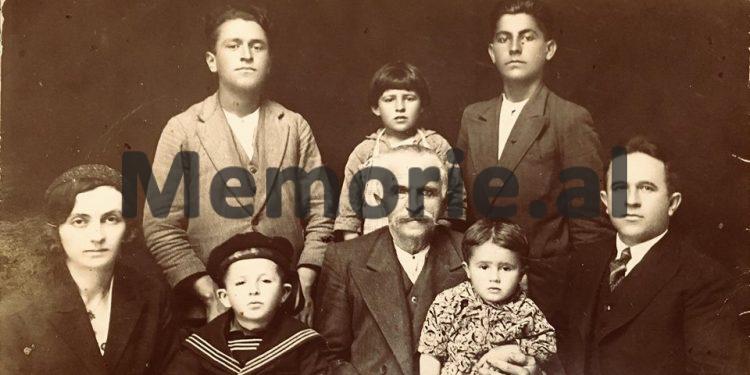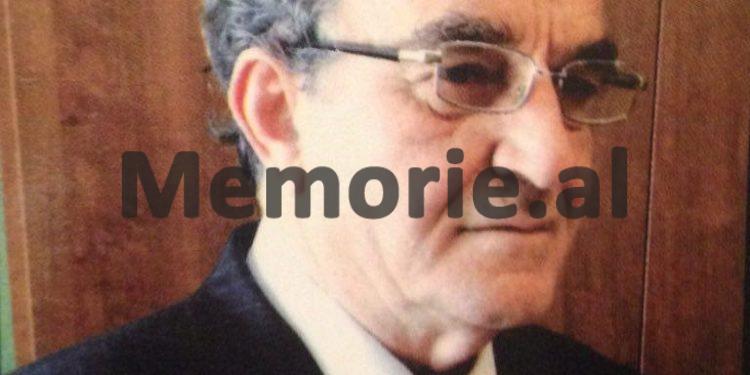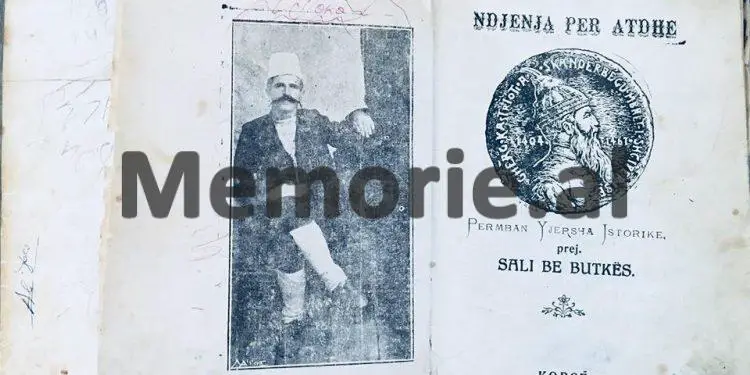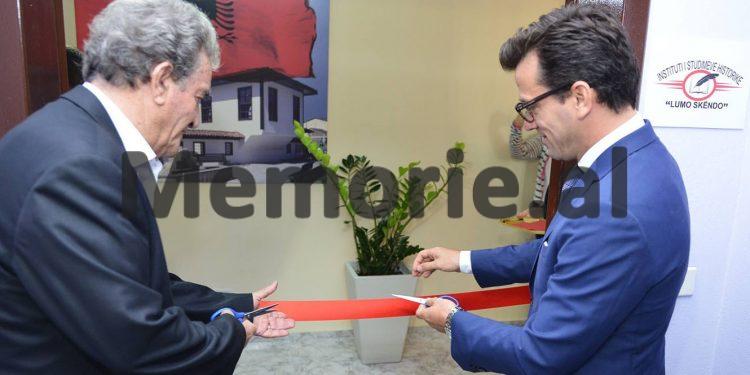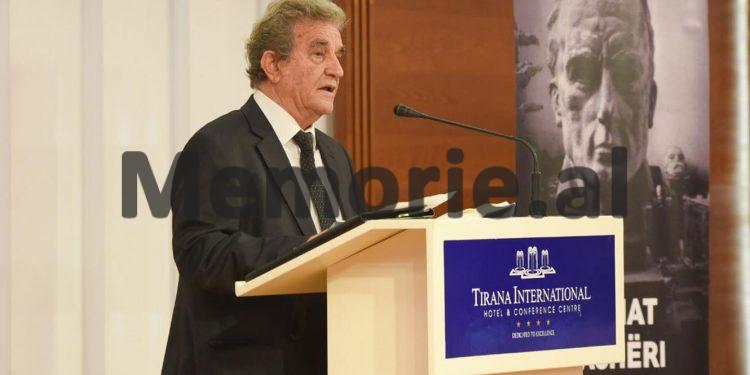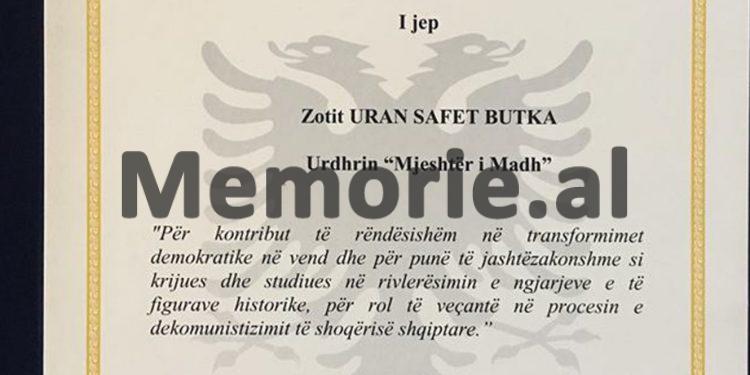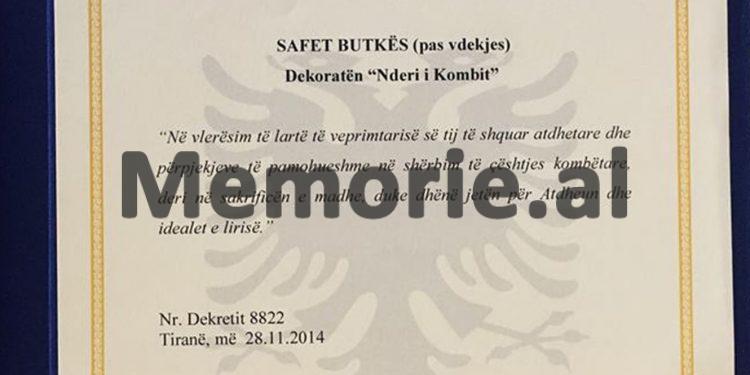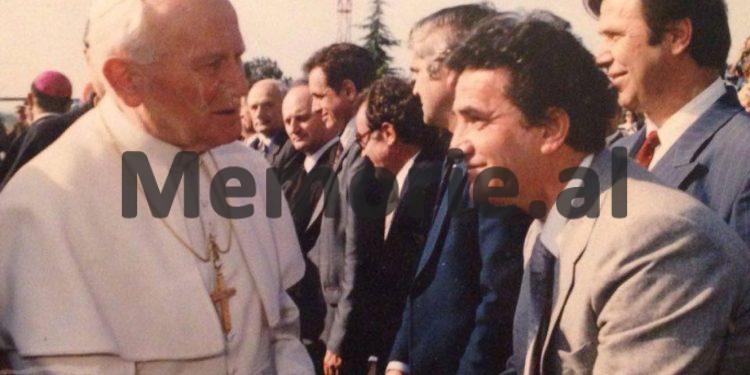Dashnor Kaloçi
Second part
Memorie.al/ publishes the unknown story of the Butka family of early origin from the village of Frashër i Dangëllisë, who later settled in Butkë and Orgockë of Kolonjë, where their first was Sali Butka, who was initially known as Sali Tahir Alicka. Rare testimonies of Uran Butka, one of the most famous suckers of this large and famous family in the history of Albania, who is known as: historian, researcher, publicist, writer, painter, politician and former MP, being a by well-known public figures of post-1990s Albania. The stories of Mr. Butka, for the patriotic activity for the benefit of the Albanian cause of his grandfather, otherwise known as the Elder of Butka, a renaissance nourished by the works of Sami, Naim, Jani Vretos, etc., who became a propagator of the Renaissance culture, books , Albanian press and schools in Kolonjë and Korçë, where together with Petro Nini Luarasi and Jani Cico Kosturi, in the years 1893-1895, they opened 5 Albanian schools in Kolonjë. How did he protect them from the Turkish government and the Greek Patriarchate, Sali Butka’s rifle, while Saliu himself, secretly brought from Bitola, Albanian books for the first Albanian schools? The unknown story of his son, Safet, from graduating in Vienna during the Zog Monarchy and then one of the main leaders of the nationalist organization Balli Kombëtar during the period of occupation (1939-1944), who sacrificed his life , to stop the fratricide between partisan and nationalist communist forces, until the Butka family was persecuted during the period of Enver Hoxha’s communist regime.
Historian, researcher, publicist, writer, painter, politician and former MP, Uran Butka, one of the most well-known public figures after the 1990s, despite holding eight decades on the shoulders of his life, continues to work again , even with tremendous energy, as if seeking to challenge not only his age, but also all that dark period of time for him, before the 1990s, when the communist regime had deprived him of the right to write, studies and books, of which he says will be his inseparable companion for the rest of his life, as long as he has a living spirit. Immersed in books in his studio, somewhere in the center of the capital near the Lumo Skëndo Institute, which he has run for a few years, it seems that he has not yet recovered from a job that is very valuable to him, and he will we said without exaggeration one of his dreams, that of bringing home the remains of Mit’had Frashëri, his idol and at the same time the leader of Albanian nationalism. Author of many books, such as those with historical studies, but also a deliverer of literature with novels and story books, Uran Butka has almost never spoken or written about his life. This is also one of the reasons that prompted us to meet and conduct this exclusive interview for Memorie.al, but life with his personal stories can never be separated from the saga of the Butka family, who are rightly called, as: strong and precious stones in the foundations of Albanian history. So, in this context, are we starting from the roots of this family?
Continued from the previous issue
Mr. Uran, why did Safet join the nationalist forces of the National Front by forming his own gang and not the communists?
Safet knew well theoretically and practically what communism was, its anti-national and anti-human essence, so he chose the Renaissance alternative, the nationalist one. He went to Cologne and created the first nationalist gang, then in Korça he was elected chairman of the nationalist squads in the Korça region and there was a lot of fighting against the Italians. His message and effort were: “Peace among Albanians, war against foreign invaders”. He was a missionary of agreement and cooperation between Albanians and has documents in the State Archive for this mission of his. On March 19, 1943 in Cologne, an 11-point agreement was signed between the nationalist forces of Safet Butka and the partisan forces for joint fighting against the Italians (Archive Document, Fund 42, File 22 v.1943). The letters of Petrit Dume and Josif Pashko (also reflected in the book “Safet Butka”) indicate this cooperation, when the Mukje Agreement had not yet been made. Likewise, this cooperation was done in other Albanian territories, which then imposed the Mukje Agreement. However, after the break-up of the Mukje Agreement by the communists and Belgrade missionaries Dusan Mugosha and Miladin Popovic, the Albanians went to war against the Albanians. The Labinot Conference, 4 to 8 September 1943, decided on the armed struggle against the nationalists, so Enver Hoxha ordered the attack against them, not only against Balli Kombëtar, but also of other nationalists, for example, against Abaz Kupi. Muharrem Bajraktari, against the Kryeziu brothers, etc., who fought separately against the Italians and the Germans.
What happened to Safet Butka at this very time when these events took place?
Safet Butka continued to fight against the invaders, even in joint battles with the partisans. We have a report by Miss Durham “Nationalist squads”, which tells about the squads and the wars of prof. Safet Butkë, who calls him the heart of Albanian nationalism. The first war against the Italians was fought by Safet Butka’s troops with 350 fighters, below Qafë e Qarrit, in Floq, on January 23, 1943. Also, the fighting in Voskopoja, Gjonomadh, etc. At this time, he organized a battle with the partisans in Pocesta near Korça, against an Italian convoy: on one side were placed the squads of Safet Butka and on the other, the partisan squads of Nexhip Vincani and they had common martyrs. The very fact that Nexhip Mileci, a nationalist and two partisans, was killed in this battle, shows that they are martyrs of a joint anti-fascist war.
Which of the most famous battles did your father, Safet Butka, take part in and lead?
The greatest battle organized by Safet Butka against the Germans is that at the Barmash Turn, on 13 August 1943, in collaboration with British forces, because Butka collaborated with British missionaries B. McLean, the British mission chief, and David Smiley, with whom there was also correspondence. (Letters are in the State Archives).
More specifically, what happened in this battle?
800 nationalist fighters led by Safet Butka went there, in Vithkuq, where the British mission was stationed, and there they made the McLean-Butka agreement (State Archive F. 250, D.40-year 1943) for a joint war on the side of the anti-fascist allies. in several battles against the Italians and Germans. Exactly one of these battles was the one in the turns of Barmarsh, not the war that took place in July 1943 by the “Tomorri” Battalion when Barmashi, Borova were burned and 107 victims were massacred. While, in the Barmash bends, the inhabitants of the nearby villages were evacuated, so as not to be damaged. The English captain David Smile also took part in this battle (I even have a gift from him, the book “On duty in Albania”, dedicated to: Safet Butka’s son). After the battle against a German convoy coming from Korça to go to Ioannina, 25 Germans were killed and several armored vehicles were destroyed. David Smiley took the identification marks of the killed Germans to be sent to Britain as evidence. This was a very important battle of Safet Butka’s detachments against the Germans (D. Smajli, publication “On duty in Albania, London). I said this to prove that anti-fascist nationalists also fought against the German occupiers. However, after the break-up of the Mukje Agreement, the Yugoslav-sponsored civil war broke out because they wanted the Albanians to go to war with each other, to drag behind their chariot both Kosovo and Albania as the seventh republic of Yugoslavia.
Can we stop for a moment at the event where your father, Safet Butka, lost his life?
Of course, this also happened when the communist invasion in the struggle for power and for communism, involved all the provinces of Albania in a destructive and bloody war. Even Safet Butka, who was the missionary of unity among Albanians and cooperation in the fight for freedom, was surrounded on September 19, 1943 by the communist forces in the Melçan Tekke, a high tekke, like a castle, where Safet had many armies and supporters. It was the national liberation forces, commanded by Nexhip Vinçani, that four days before this date, had fought together in Pocesta against the Italians and were now ordered to fight against Safet Butka. At that time, some members of the Korça National Front Regional Committee were saying that we should fall for the communists. Safet Butka refused: “We did not come out to kill the Albanians” and declared: “The first and only Albanian I can kill is myself.” Thus, he killed himself not to start the fratricidal war and this act was also appreciated by the opponents, as a personality who killed himself, so that Albanian blood would not be shed. He was decorated with the highest order, the “Order of the National Flag” and the order “Honor of the Nation”.
After summarizing the life and activity of your grandfather and father, we have reached you…?
I was born on December 2, 1938, in Tirana. At that time, my father, Safet, gathered his friends, among them Dr. Bashon, co-student in Austria and founder of the hospital and maternity hospital in Tirana. Madje Dr. Bashoja also named me. Safeti has covered it in a small diary, this birthday in our house in Tirana. My life started there, later it was upset because our own family life was upset.
Specifically, what happened to your family when the communists came to power in December 1944
After World War II and the takeover of power by the communists, the first action against the Butka family was the seizure of all Safet Butka’s property as an “enemy of the people.” The first family to be interned in the Kruja concentration camp in 1945 was the Butka family. There were two types of internment: in concentration camps surrounded by barbed wire, with armed guards like those of Nazi fascism such as the camps of Kruja, Kamza and Tepelena, and then internment camps throughout Albania. I am not going to dwell on these sufferings, as most Albanians have removed them; after all suffering is a misfortune, it is not some merit. Of course, what was close to us in adversity was my mother, Khadija, she raised us with sacrifices.
How many people did your family consist of at that time?
We were four orphaned children: my two older brothers, Iljazi and Saliu, me the youngest and sister Tefta. She nurtured our love for Safet, despite what communist historiography said. Koçi Xoxe said that: “Safet, by killing himself, spared us a bullet in the forehead”. Years later, when I joined the Democratic Movement, this insinuation was repeated in “Zeri i Popullit”, where it was written: “Uran Butka will kill himself like his father.” When I returned from Cologne, I found my mother read this article.It was terrifying.
Remain in the period when the persecution of your family began?
Yes, after the internment, the mother worked as a manual worker in the Construction Company “Muhamet Gjollesha” in Tirana, where cement slabs were produced, with cracked hands and gums between teeth. He fed us and raised us with worries, but he was worried about school, also fed by Safet, because he always wrote to him from Ventotene: “Do not separate the children from school and work, so that they can also receive a work education”. Meanwhile, he tried not to look around Tirana, he moved like a shadow, he just went to work and came back because he was afraid of another internment.
How did they leave you in Tirana as a family, when Safet Butka was considered the greatest enemy of the communists?
I will explain that to you too, but in parentheses I am telling you an event: We were settled not in our house built by Safet on credit and where I was born, but in a room in the house of Cen Kazazi, the popular doctor of bone. He first hired us and then did not even hire us. One day the women of the neighborhood came to that house and put their arms around their mother, telling her that they had an important meeting at the “17 Nëntori” cinema. She never went to meetings, but they took her with Cen Kazazi’s wife and sat in a row of cinema chairs. Before the meeting began, where a leader would speak, a military man, who was in fact Safet Butka’s nephew, came on the scene from his mother. His name was Begator Kozeli. Safet, when he was a professor at the Lyceum of Korça, took Begator from the village of Kozel and kept him at home, took him to the Lyceum where he taught, while his mother cut a new pair of clothes and took care of him as for her child. During the war he became a partisan and became a senior military man.
Did this person know about your family?
Unfortunately, not. So, this soldier, came out in front of the stage at that meeting, spotted the mother dressed in black and pointed her finger. She saw the finger pointed at her and tilted her head away from being noticed. Begatori called one of the people of the State Security and told him: “That woman is reactionary, to be taken out of the hall immediately, because the meeting does not start without her coming out”. My mother is from a large patriotic family. Her father, Ramiz Lubonja, was killed in 1912 because he was fighting against the Ottoman invaders in Sali Butka’s gang, while her mother drank poison because she did not want to live after Ramiz’s murder, leaving her orphaned mother almost a year old. half. So, there was an unfortunate life, which continued even after the murder of her husband, Safet. So, this patriotic woman, intellectual and generous, was pointed the finger?!
What happened to your mother there?
The women of the neighborhood were also worried about what happened there, especially the wife of Cen Kazazi, who said that they would all leave as a group and actually left the hall, as in those ancient tragedies, a line of women fleeing from scenes, not to leave only the mother. She later told me: “At that moment my eyes met his. I noticed not a hatred for me, that he did not have to have it, but I saw another thing, he was doing this to show the government how he was doing the class war. “And indeed, he was promoted afterwards, but he also suffered like many others from the war within the species.” A shocking event, in addition to other painful troubles, however it raised us amid suffering and we did not lose.
Did your mother ever inject hatred into those people who had wronged you?
Absolutely not. He did not even say such things to us, because he did not want to harm us and we did not have revenge inside us.
How and where were you educated?
I continued my pedagogical high school, I worked as a teacher for several years in the districts of Fier and Kruja. At this time, in a moment of zigzags of the class war, of its softening, depending on Albania’s relations with the world, we were given the opportunity to pursue university studies by correspondence. I studied Philology and was appointed Literature Teacher at the Kruja Gymnasium. I was a correct teacher, I was passionate about teaching, I was loved by students and crutches.
Did you have any vicissitudes when you were a teacher in Kruja?
Here I wanted to stop and I am telling you another event from this time. They brought Masar Begteshi, who had worked in the Central Committee of the Party, to Kruja with a staff turnover, and brought him as the director of the House of Culture. On the eve of the feast of Kruja, September 22, he called to a meeting those who dealt with the culture of the city, for example with songs, dances, etc. He also called me who prepares the students for recitations every year and said: “You will recite Shefqet Musarai ‘Epopee of the National Front'”. I replied that the teacher does not recite through the festivities, but prepares the students and that this was a provocation on his part. As it turned out, the ground was prepared.
What happened next?
Masari compiled the denunciation that I had refused to recite “Epopee of the National Front”, because I was the son of Safet Butka, etc., so the arrest warrant was cut for me by the Internal Affairs Branch, which would make the demonstrative arrest in a classroom Matura, where I taught, in order to arouse fear in students and Krutan families. The principal of the gymnasium, Stefan Bulo, objected to me being arrested at the school when this could be done outside its premises. For this reason, he went to the Party Committee, where the first secretary was Piro Kondi. Stefani, a director with integrity and courage, was from Zagoria, where Piro Kondi was from, and their families were close friends. He asked Piro Kondi not to be arrested in class between students and told him the truth of that event. “What kind of man is this?” Pirro asked? The principal told him that “he is the best teacher in the school”. “Whose is it?” Continued the first secretary? “Safet Butka’s son,” the director replied. “That’s right…, I was a student of Safet Butka in Gjirokastra. He was a good principal, teacher and patriot. He killed himself not to fight against us (said in intimacy). Not only will he not be arrested in the eyes of the students, but he will not be arrested at all. “Let another measure be taken”, ordered Pirro Kondi.
And his order was carried out?
Yes, of course. In fact, I was not arrested, but teachers took me to a village in Kruja, Derven they say. After a few years, I was fired, like many others with “spots in the biography”, because new loyal party cadres emerged. I returned to Tirana and worked as a laborer. Then I entered the art high school “Jordan Misja”, to take another profession. I managed to settle in the shoe factory as a painter. Thus, a more or less peaceful life continued. At the shoe factory I met the doctor Merjeme Pasmaçiu, who had come there for a medical study. She was from a Berat citizen family. Thus, we raised the family, but the class war hit us again./Memorie.al
Continues tomorrow




